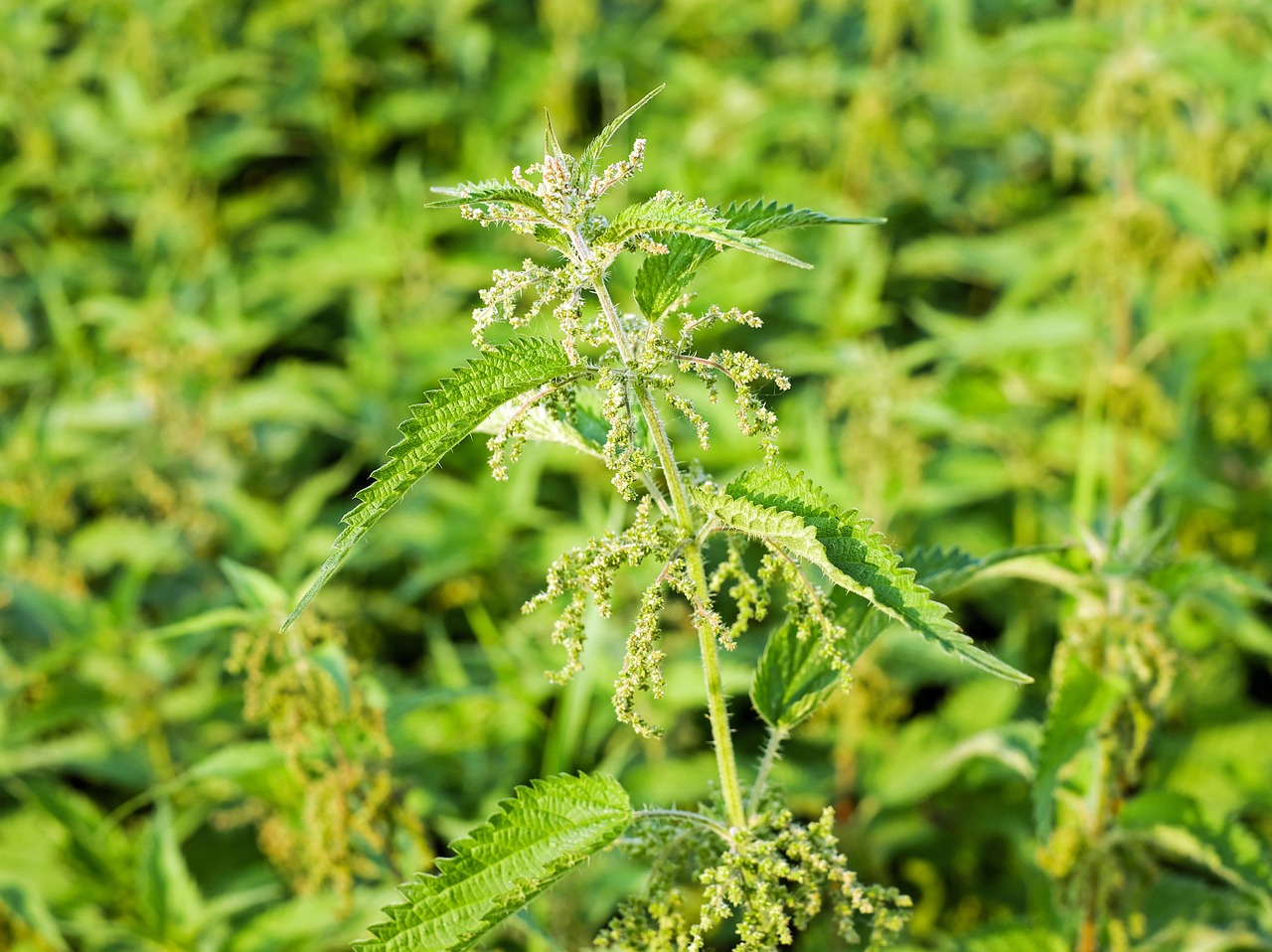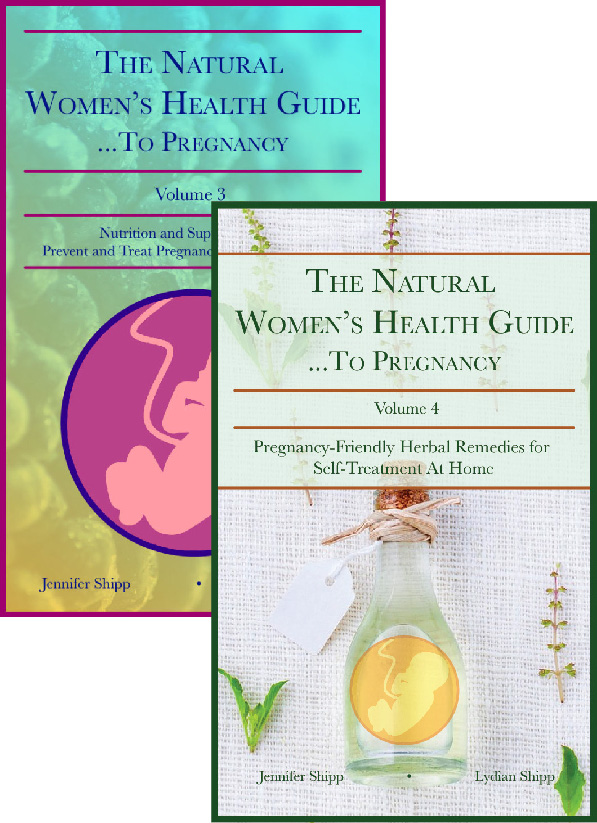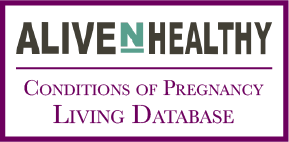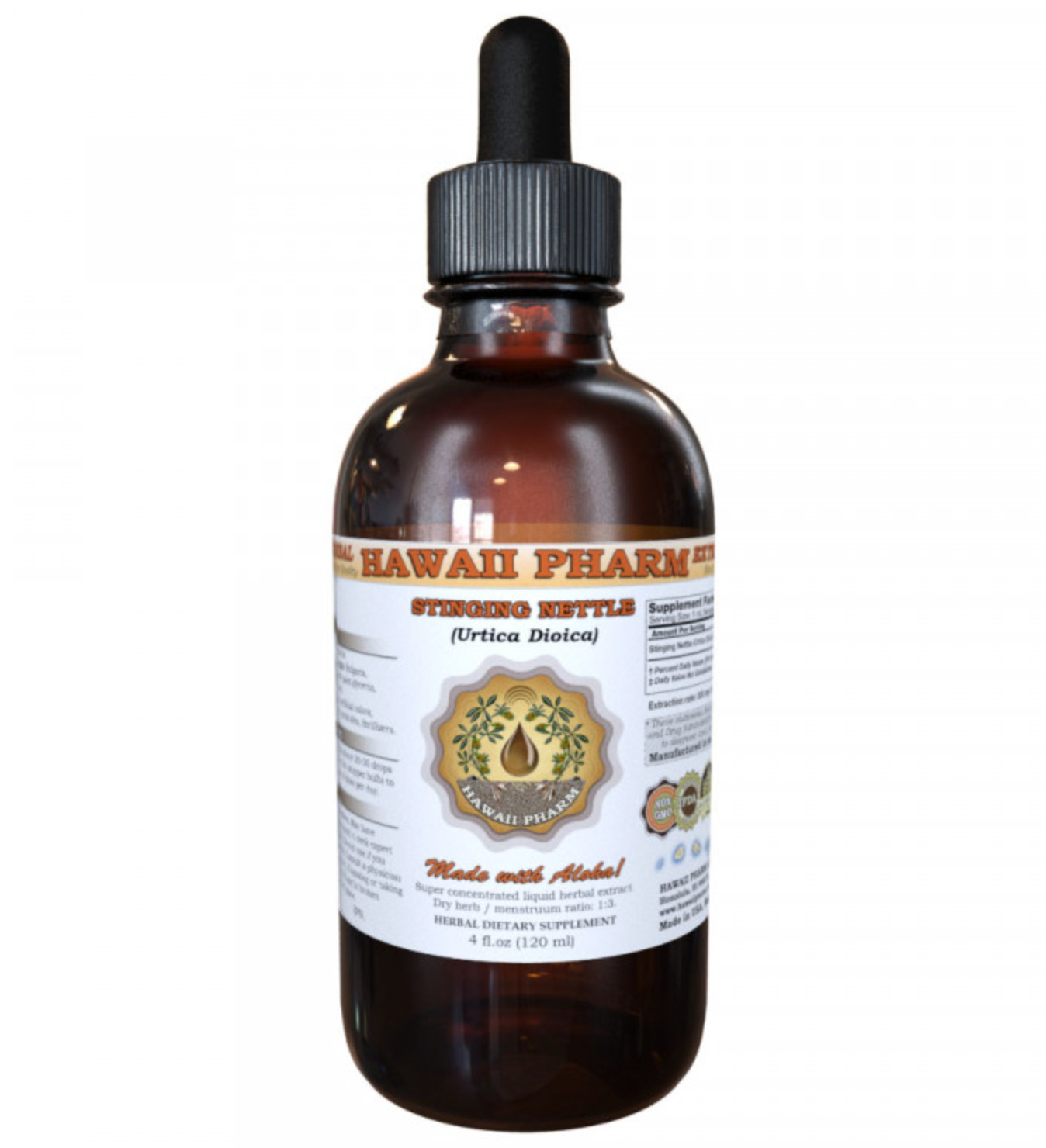 Stinging Nettle: A Nutritive Herb for UTI, Cough, Leg Cramps, and More...
Stinging Nettle: A Nutritive Herb for UTI, Cough, Leg Cramps, and More...
Stinging nettle (Urtica dioica) is an extremely common plant that can be found growing in most places in the world, though it’s most common in North America, Europe, North Africa, and some parts of Asia, such as in Nepal. It has been used for thousands of years both medicinally as well as in food, and the herb is still cooked and eaten regularly as part of a healthy diet in many cultures.
Stinging nettle has the following medicinal properties:
- Mineral rich tonic
- Astringent diuretic
- Hemostatic / Stops bleeding
- Alterative
- Anti-allergy
- Circulatory stimulant
- Galactagogue / Stimulates lactation
- Relieves inflammation of the urinary tract
- Uterine relaxant
- Eliminates uric acid
- Mildly hypoglycemic
- Antitussive
- Venous tonifier
- Antihistamine
- Anti-inflammatory
- Antiproliferative
- Antioxidant
- Analgesic
- Antirheumatic
- Anticarcinogenic
- Detoxifier
- Lymphatic stimulant
- Antiviral
- Antibacterial
Stinging nettles have been studied in regard to the treatment of the following health problems:
- Iron-deficiency anemia
- Cardiovascular disease
- Muscle cramps
- Fatigue / weakness
- Cough
- Varicose veins
- Hemorrhoids
- Arthritic swelling
- UTI
- Kidney problems
- Seasonal allergies / Hay fever
- Allergic rhinitis
- Osteoarthritis
- Hypertension / high blood pressure
- Hyperglycemia / High blood sugar
- Muscle and joint pain
- Eczema
- Gout
- PMS-related cramping and bloating
- Heavy menstrual blood flow
- Menopause symptoms
- Alzheimer’s disease
- Viral infections
- HIV-1 AND HIV-2
- Respiratory syncytial virus (RSV)
- Cytomegalovirus (CMV)
- Chronic myalgia
- Rheumatoid arthritis
- Toxic buildup
- Hepatotoxicity
- Scar healing
- Acne
- Wrinkles and age spots
- Asthma
- Benign prostatic hyperplasia (in men)

"The Natural Women's Health Guide... to Pregnancy - BUY HERE!"
Stinging Nettle as a Nutritive Herb During Pregnancy
As an alternative herb, Urtica dioica can help improve nutrient uptake in the stomach and enhance the efficiency of the digestive process. Stinging nettle is also extremely nutrient rich, and as such, many sources recommend that Urtica dioica tea be a part of a rotation of nutritive teas starting from the beginning of pregnancy. In particular, Urtica dioica is rich in the following nutrients:- Minerals
- Calcium
- Magnesium
- Potassium
- Phosphorus
- Sulfur
- Zinc
- Iron
- Cobalt
- Nickel
- Molybdenum
- Manganese
- Magnesium
- Copper
- Selenium
- Boron
- Vitamins
- Vitamin C
- Vitamin A (in the form of provitamin A)
- Vitamin D
- Vitamin K1
- Amino Acids / Proteins
Besides the nutrients listed above, stinging nettle is also known to contain certain other important medicinal and nutritional substances, including:
- Acetylcholine
- Chlorophyll
- Flavonoids
- Quercetin
- Rutin
- Fiber
Urtica dioica for Leg Cramps During Pregnancy
Stinging nettle is rich in potassium, which may be part of the reason why it helps prevent leg cramps during pregnancy, since potassium deficiency is a common reason for leg cramps in all populations. Plus, Urtica dioica has mild analgesic / pain-killing effects and anti-inflammatory properties that may be helpful as well. This herb has a long history of use in the treatment of general muscle-related problems, including not only leg cramps, but also arthritis, myalgia, rheumatism, uterine cramps during menstruation, and more. The Conditions of Pregnancy Living Database - NOW AVAILABLE! Click here to learn more...
The Conditions of Pregnancy Living Database - NOW AVAILABLE! Click here to learn more...
Urtica dioica for Pregnancy Fatigue
Because stinging nettle is so nutritious, it can help prevent some fatigue symptoms during pregnancy simply by ensuring that the mother-to-be has enough nutrients not only for her baby, but for her. During pregnancy, a lot of the nutrients in the food that the mother eats end up going to the baby, which, though positive for fetal growth, can negatively affect the mother’s health. Stinging nettle helps offset this issue by supplying extra essential nutrients so that the mother herself is less likely to become depleted.Urtica dioica for Gestational Diabetes
Stinging nettle may be beneficial for women with gestational diabetes. This herb is mildly hypoglycemic and decreases glucose absorption in the small intestine in addition to being able to encourage insulin secretion, thus preventing high blood sugar levels through two different mechanisms. While Urtica dioica might not be able to control gestational diabetes completely on its own (at least not in all cases), it would be a good choice to include in an herbal mix that is aimed at treating this condition of pregnancy.
Urtica dioica to Prevent Postpartum Hemorrhage
Stinging nettle contains high levels of vitamin K1, as well as smaller quantities of vitamin K2 in organically grown varieties of the plant. In our brief discussion of postpartum hemorrhage, though, vitamin K1 is the main vitamin to pay attention to. Women with low vitamin K1 levels are at a higher risk of hemorrhage during childbirth since K1 is responsible for blood clotting. Healthy blood clotting is necessary in order for the bleeding to stop after childbirth within a reasonable period of time.Stinging nettle has a long history of use as a postpartum hemorrhage preventative, and has been used by midwives for many years for this purpose.
Urtica dioica for Urinary Tract Infection and Kidney Problems
Stinging nettle has mild diuretic properties, and this in addition to its being an anti-inflammatory medicine makes it a good choice as an herbal treatment for urinary tract infections or kidney infections during pregnancy. Inflammation and toxic buildup are major problems when it comes to successfully treating UTIs and kidney infections, and this is especially true during pregnancy. Stinging nettle also stimulates the lymphatic system to further encourage detoxification. When combined with antibacterial herbs or medicines, Urtica dioica can be extremely beneficial in treating urinary tract and kidney problems, including UTIs, kidney infection, and kidney stones.Urtica dioica for Cough During Pregnancy
Urtica dioica has cough suppressant properties, and since it’s safe during pregnancy, it’s an important herb to have on hand in case you come down with a cold or allergies during your pregnancy. Stinging nettle is anti-inflammatory and may also be able to lower histamine levels, which make it a good choice especially for coughs that may involve inflammation, such as those caused by allergies. This anti-inflammatory quality can also, of course, be valuable if you have a cold, since sinus inflammation doesn’t do anyone any favors (inflammation in the sinuses leads to congestion and a later downpour of drainage).Personally, I have found that Urtica dioica tincture is more effective in treating a persistent cough, though a tea made from powdered stinging nettle also works well.

Urtica dioica to Prevent and Treat Pregnancy Anemia
Iron deficiency anemia is a major problem during pregnancy, and is common for a lot of women, especially during the first trimester when the body has to build a lot of blood (a woman’s blood supply increases by approximately 50% during pregnancy!). While iron supplements are extremely important to treat anemia, there are also some other herbal treatments that can be beneficial to women trying to prevent or actively treat pregnancy anemia. Stinging nettle is one of these herbs.Stinging nettle has a high vitamin C content, which helps support iron absorption. The high chlorophyll levels in Urtica dioica also help boost iron absorption and utilization in the body. Note that Urtica dioica is a main ingredient in Floradix, a popular herbal iron boosting supplement.
Urtica dioica for PUPPP (Pruritic Urticarial Papules and Plaques of Pregnancy)
PUPPP is a condition affecting women during pregnancy that causes the development of itchy bumps, similar to hives, on the skin. This hive-like rash is most likely to show up on the belly, especially in or around stretch marks, but can spread from here to other areas of the body too. Note that this condition may also be referred to as polymorphic eruption of pregnancy or toxemic rash of pregnancy.Stinging nettle may help treat PUPPP by decreasing inflammation throughout the body. The vitamin C and sulfur contents of Urtica dioica also lend themselves well to treating skin problems of all kinds, since both of these nutrients work directly with the skin and tissues to keep them healthy.
Urtica dioica for Varicose Veins During Pregnancy
Urtica dioica has been known to strengthen venous tone and health in both pregnant and nonpregnant individuals. While there are a lot of different herbal remedies for the direct treatment of varicose veins, nettles may help prevent the development of varicose veins in the first place in addition to supporting their healing when the plant is combined with other natural varicose vein remedies. Use Urtica dioica prophylactically or as part of an herbal treatment protocol for varicose veins in the legs, vulvar varicosities, or hemorrhoids during pregnancy.Urtica dioica for the Postpartum Stage
Stinging nettle is also safe for use after pregnancy and during breastfeeding. It has been known to help ease afterbirth pains, and can also help boost breast milk supply. Again, because stinging nettle leaves are so nutritious, they can not only increase breast milk supply, but also the quality of the breast milk.How to Take Urtica dioica During Pregnancy
Stinging nettle tea can be taken daily starting from the beginning of pregnancy right until the very end. Put 1 tablespoon of stinging nettle powder or 2 tablespoons of crumbled loose leaf tea into a mug size of your choosing, then pour hot water over the powder/leaves to steep for at least 10 minutes. Add some honey or fresh lemon juice to taste, then drink hot or pour over some ice for a refreshing drink on hot days.To make an infusion of nettles (this is stronger than a tea), add 1 ounce of dried nettle leaves to 1 quart of boiling water. Allow this to steep for 4 hours in a covered container (like a canning jar) before drinking. You can reheat it if you wish, or put the tea in the fridge for later.
Alternatively, you can use a tincture of stinging nettle medicinally to treat problems such as coughs or leg cramps. Take 2-6mL of the tincture up to 3 times per day.
You can drink nettle tea or take nettle tincture daily. Though it’s fine to take it any time of day, it may be ideal to take it in the morning since it can help prevent fatigue. Stinging nettles combine well with red raspberry leaf and alfalfa in particular to create a highly nutritive daily pregnancy tea (and of course, you can add any other herbs you feel necessary to treat or prevent specific problems).
You can take a total of 2-12 grams of the infusion per day, or between 2-20mL of tincture daily.
 Frontier Co-op Organic Cut & Sifted Stinging Nettle Leaf 1lb
Frontier Co-op Organic Cut & Sifted Stinging Nettle Leaf 1lb
 Click here to subscribe to the Living Database!
Click here to subscribe to the Living Database!
Resources:

 Zazzee USDA Organic Stinging Nettle 20:1 Extract, 9000 mg Strength, 120 Vegan Capsules, 4 Month Supply, Concentrated, Standardized 20X Extract, Certified Organic, 100% Vegetarian, All-Natural, Non-GMO
Zazzee USDA Organic Stinging Nettle 20:1 Extract, 9000 mg Strength, 120 Vegan Capsules, 4 Month Supply, Concentrated, Standardized 20X Extract, Certified Organic, 100% Vegetarian, All-Natural, Non-GMO








